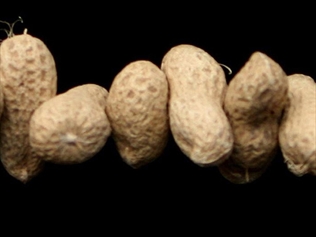
Eating half a handful of peanuts a day could protect against death from cancer, researchers say. Source: AAP
EATING half a handful of peanuts or nuts a day could protect against death from cancer and heart disease, research suggests.
A STUDY found men and women who eat at least 10g of nuts or peanuts per day have a lower risk of dying from several major causes of death than people who do not consume them.
But the same health benefits were not found in eating peanut butter. Researchers in the Netherlands said peanuts and tree nuts both contain various vitamins, fibre, antioxidants and compounds such as monounsaturated and polyunsaturated fatty acids that could possibly contribute to the lower death rates. They said peanut butter contains salt and trans fatty acids that could inhibit the protective effects of peanuts. The reduction in mortality was strongest for respiratory disease, neurodegenerative disease, and diabetes, followed by cancer and cardiovascular diseases in both men and women. The research was carried out within the Netherlands Cohort Study, which has been running since 1986 among more than 120,000 Dutch men and women between the ages of 55 and 69. The participants’ nut-eating habits were assessed by asking about the portion size and frequency of consumption of peanuts, tree nuts and peanut butter. They found that regular nut-eaters tended to be younger, more highly educated, to drink more alcohol, eat more fruit and vegetables, more likely to take supplements and to be less hypertensive. Women who ate nuts were also often leaner, had never smoked and were less likely to report diabetes. Epidemiologist Professor Piet van den Brandt, who led the study at Maastricht University, said the findings were “remarkable”. “A higher intake was not associated with further reduction in mortality risk,” he added. “This was also supported by a meta-analysis of previously published studies together with the Netherlands Cohort Study, in which cancer and respiratory mortality showed this same dose-response pattern.” The study is published in the International Journal of Epidemiology.
